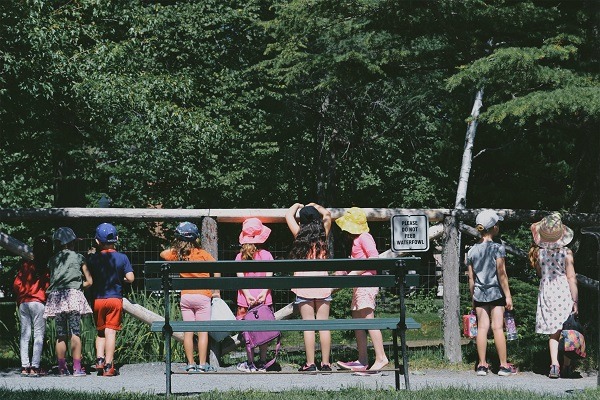As children, whenever we hear of an upcoming field trip we can’t help but feel tremendous anticipation and excitement. It’s one of those rare days that we are able to leave school with our teachers and classmates. But little did we realize that those days were a result of weeks of preparation and arrangements by our parents and teachers. We don’t often feel the pressure bordering on anxiety, experienced by our teachers on having to supervise an entire class beyond the safety of the school premises.
If you are an educator, you are well aware that of the advantages of discussing to your students about certain subjects, while they’re in the thick of it. It’s far effective than showing them illustrations from textbooks and the internet. School Trips are aimed to inspire students through educational tours. Organizers can benefit from various tour agencies to assist them in planning a worthwhile trip for the students to explore new places and cultures with their teachers and peers. The paramount consideration all organizers and parents take into account in these activities is safety. Although there are already established safety guidelines, it is still important for the organizers and students to familiarize themselves with these measures to prevent untoward events during the trip.
Here are some of the safety tips that should be observed during a school tour:
1. Communicate with the Students
The first thing you have to do when planning a school trip is to disseminate information to the students participating in the excursion. This is also your chance to instruct them about the safety guidelines and who will be there whenever they need help. You can expect an overwhelming excitement, especially if it’s a first trip for the class, so make sure to remind them to enjoy and relax. But also to be watchful of themselves and their classmates, particularly in crowded areas. You will have to make yourself clear to your students to avoid confusion and elicit clarifications if there are some questions.
2. Parent’s Consent
This is also an important part when organizing an educational tour. Letting the parents or guardians know of an upcoming trip for their children is one of the first things you’ll have to do as a teacher. Give them the details and schedule of the trip as well as the persons involved in the activity. A Parent’s or Guardian’s Consent Form is one way to communicate about the trip. Ask them to sign the form so that you’ll have their permission to take their children from the school premises for a school-sanctioned trip. You can also ask the parents to add details if their children will have some special instructions or if they just have some questions about the trip.
3. Assign students into different groups with a representative
One way to keep an eye on your students is to divide them into groups. Each group is to have a representative that you’ll have to check regularly. The representative or the team leader can be chosen by the group members themselves. You can then assign tasks to the leaders to monitor their group and keep them updated on any changes or news pertaining to the trip.
4. Bring Supplies
You will need to prepare and bring a first-aid kit and other emergency items on the trip. The kit may comprise adhesive bandages, antiseptic solutions or cream, cotton balls, thermometer, antibiotics, and other OTC medication for fever, cough, and indigestion. If your participants are children, then they are likely to get injured from their boisterous horseplay. You don’t want to have to use them, but you’ll be glad you’re well equipped when you need them.
It is also advisable to have light snacks with you especially juices. Sometimes children will play too much and dehydration may set-in. If you noticed your students turning pale and weak from exhaustion, you’ll be thankful you have your provisions for you rather than frantically looking for a store nearby.
5. Arrange a Safe Transportation
Transportation is one of the major aspects of the trip that you’ll have to plan out. If you’re enlisting the services of a tour agency, ask them about the mode of transportation you’ll need and how are they planning to schedule the trip and arrange the passengers. You will also need to know the model and if they’re suitable for children, as well as if they don’t go over the trip’s budget.
6. Prepare Emergency Contact Numbers
Make sure to have a list of emergency contacts of your students and the emergency numbers of the place you’re visiting. This is especially important if you’re planning to go overseas, some states will have a different hotline for police or medical emergencies. It is advisable to have them handy with you when you arrive. Some students may have allergic reactions or may require special medications, so it’s important to have a contact number of their parents for these types of situations.
7. Have an Assistant with you
A teacher can handle his or her class if they’re in a classroom. But outdoors in a different locality, it’s on a new level of class management. You’re going to have to enlist the help of some assistant teachers to supervise your class. They can help you keep the children organized and they’re also an extra set of eyes to help you monitor them.
8. Ask them to wear Uniforms
Although some schools don’t require their students to wear uniforms, you can print t-shirts commemorating the trip and make it a uniform for them to wear. If you will be traveling with a big group or you’ll be mixed with different groups on the tour, it is extremely useful to have uniforms to help you identify your students. It will also be easier for you to see if some of your students have deviated from the group.
School excursions should be a delightful experience for the students. They should feel safe as well as they are immersed in the educational value of the destinations they’re going to visit. You should be adequately prepared for any situation in order to have a quick response to every issue that may arise. There will only be a handful of adults with you on the trip, taking care of a class of around thirty students can be a stressful situation if you are ill-prepared.


